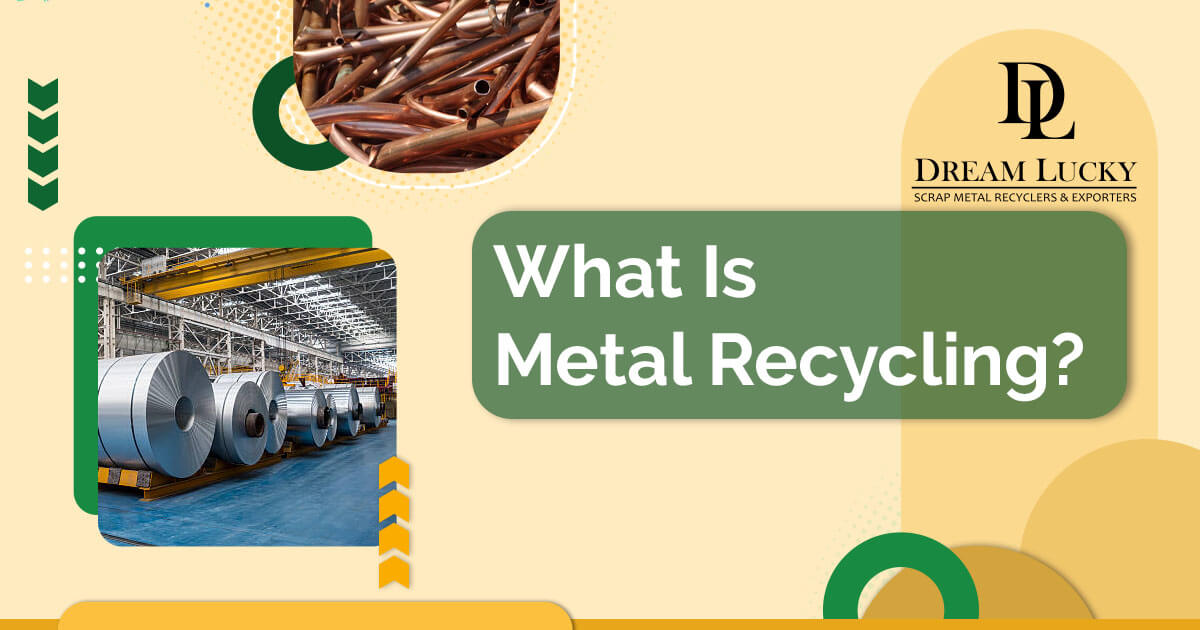
Metal recycling is a process where scrap metals are collected, sorted, processed, and transformed into reusable materials. In Australia, this thriving industry is central to environmental conservation and economic efficiency.
With the rising demand for metals, recycling helps reduce our reliance on raw materials, lowers energy consumption, and contributes to a greener future.
Environmental Benefits of Metal Recycling
Recycling metals offers immense environmental benefits, particularly when it comes to conserving energy and preserving natural resources.
Energy Conservation
Recycling metals like steel and aluminium uses far less energy compared to extracting and refining new metals. For example, producing steel from recycled cans uses around 75% less energy than creating steel from raw iron ore.
This reduction in energy usage means fewer greenhouse gases, which is a win for the environment.
Resource Conservation
Metal recycling cuts down the need to mine and process virgin materials, which can have a big impact on resource conservation. Recycling just one tonne of steel saves roughly 1,130 kilograms of iron ore, 630 kilograms of coal, and 54 kilograms of limestone.
By recycling, we’re keeping these precious resources in the ground and reducing the environmental impacts of mining.
Economic Benefits of Metal Recycling
Beyond the environmental advantages, metal recycling is also economically beneficial. Australia’s metal recycling industry supports jobs, reduces production costs, and creates new revenue streams.
- Market Demand and Financial Incentives
With high global metal prices, there’s a strong financial incentive for both businesses and individuals to recycle metal. Scrap metal yards and recyclers will buy metal based on current market prices, encouraging people to participate and helping to keep metals out of landfills. - Secondary Markets
Recycled metals fuel secondary markets, meaning we can rely less on newly mined materials. This helps build a stable economy by generating income streams for recyclers and providing affordable materials for industries that rely on metal.
What Types of Metals Are Recycled?
Different types of metals are commonly recycled across Australia. Each has its own environmental and economic benefits:
- Aluminium
Lightweight and endlessly recyclable, aluminium is often collected from:- Beverage cans
- Extrusions
- Sheet metal
- Copper
Known for its high conductivity, copper is sourced mainly from:- Wiring
- Pipes
- Tubing
- Steel
One of the most recycled metals in the world, steel is commonly reclaimed from:- Cars
- Construction materials
- Appliances
- Iron
Recycled from various sources, including vehicles and heavy machinery, iron is another staple in the recycling industry.
How the Metal Recycling Process Works
Recycling metal involves several stages to ensure materials are processed efficiently and made ready for reuse. Here’s an overview of the typical steps:
- Collection
This can include everything from empty cans to old appliances and car parts. Scrap metal is collected from various sources:- Households
- Construction sites
- Demolition projects
- Industrial facilities
- Sorting
Once collected, the metals are sorted according to type and quality. Sorting is essential as it ensures that metals are processed appropriately and maintains the quality of the recycled product. - Crushing and Shredding
The sorted metals are then crushed or shredded to make them easier to handle. Shredding also prepares the metal for further stages by increasing the surface area, making it easier to process. - Melting and Purification
Next, the metals are melted down in specialised furnaces to remove any impurities. Different types of metals require different melting techniques. For example, magnetic separation is often used for steel, while electrolysis can be used for purifying aluminium. - Manufacturing
Once purified, the molten metal is poured into moulds to create raw materials like bars or sheets, which are then used to manufacture new products.
A Brief History of Metal Recycling in Australia
Australia has a long history of metal recycling, going back over a century. By the early 20th century, companies like BHP Steel began reclaiming industrial scrap for new steel production.
Today, the industry is more vital than ever, with government initiatives supporting metal recycling and encouraging Australians to participate. Programs like the Container Deposit Scheme allow individuals to contribute, promoting community involvement and resource conservation on a larger scale.
Why Metal Recycling Matters
The benefits of metal recycling in Australia are clear—it saves resources, reduces energy consumption, supports the economy, and keeps our landfills free from unnecessary waste. Whether you’re a business or just doing your bit at home, recycling metal is a simple way to help conserve resources and protect the planet.
Metal recycling doesn’t just benefit the environment; it helps create a sustainable, circular economy where materials are reused and repurposed. So next time you have an empty can, a worn-out appliance, or some scrap metal Perth, get in touch with Dream Lucky Scrap Metal to make recycling easy and impactful.
By doing so, you’re contributing to a cleaner, greener, and more resourceful Australia—contact us for a free consultation to learn how easy it is to start recycling today.
Omer Bekhit
The dedicated owner and operator of Dream Lucky Scrap Metal. He has been at the forefront of ethical scrap metal recycling, exporting, and dealing. With a hands-on approach to the business, Omer ensures that every transaction is conducted with transparency and sustainability in mind.